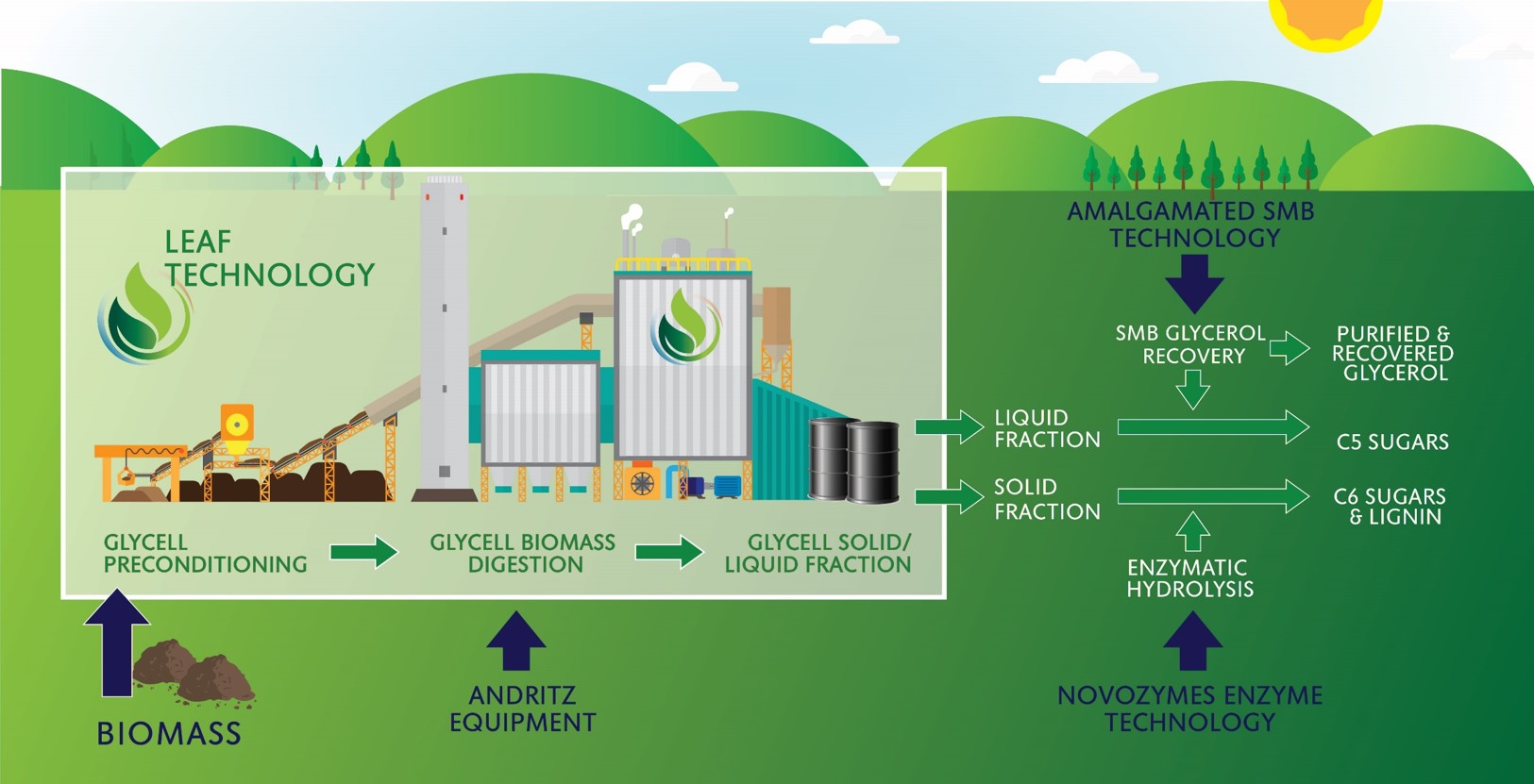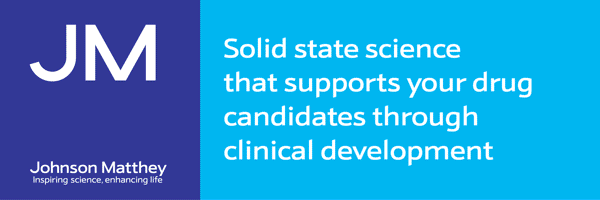Materials Science
Game-changing technology for bio-based production 7th December 2018
By Ken Richards, Managing Director at Leaf Resources
Ken Richards, Managing Director at Leaf Resources, discusses the advantages of Glycell, a novel technology that produces higher yi
Ken Richards, Managing Director at Leaf Resources, discusses the advantages of Glycell, a novel technology that produces higher yields of high-purity, low-cost cellulosic sugars for bio-based production from lignocellulosic biomass.
Replacing petroleum-based manufacturing with bio-based production from renewable feedstocks can help us address global challenges like climate change and resource scarcity. Lignocellulosic biomass is abundant. Today, there is enough to produce $750 billion worth of cellulosic sugars per year and replace petroleum in thousands of every day products.
 Biomass-to-chemicals.jpg)
Breaking plant biomass down into its constituent polymers cellulose, hemicellulose and lignin is costly. Existing pre-treatment technologies like alkaline, dilute acid or steam explosion require large amounts of energy and chemicals, making it difficult for cellulosic sugars to compete with petroleum-based feedstock for chemical production.
Leaf Resources, a global leader empowering the growth of green chemistry, has developed the Glycell process, a technology proven to produce higher yields of high-purity sugars, more quickly and using less energy than rival processes.
Glycerol chemistry and rapid biomass conversion
Pre-treatment is an essential step for the conversion of most lignocellulosic materials. The Glycell pre-treatment process uses waste glycerol from biodiesel production as the main reagent to pre-treat plant waste. A unique combination of engineering and chemistry speeds up the biomass conversion process and decreases the severity of the conditions required to produce cellulosic sugars (e.g. using lower temperature and pressure).

The glycerol biomass slurry is pressed to produce liquid and solid fractions:
- Cellulose in the solid fraction is converted to C6 sugars and native form lignin using industrially-tailored enzymes from Novozymes.
- A simulated Moving Bed Chromatography (SMBC) unit is used to separate C5 sugars and the refined glycerol in the liquid fraction.
According to independent testing at the Bioprocess Pilot Facility (BPF) in Delft, the Netherlands, Glycell produces 25% more sugars at a faster rate than rival approaches. The technology has been proven to produce cellulosic sugars from a range of feedstocks, including Tasmanian blue gum (Eucalyptus globulus), poplarwood chips, sugar cane bagasse, palm empty fruit bunch, wheat straw, rice husk and corn stover.
Co-products and applications
The waste glycerol used in the Glycell process is refined from 80 to 95% purity. Purer form glycerol can be sold to the pharmaceutical, cosmetics, animal feed and lubricants industries to generate additional revenue. For the supply of raw glycerol and sale of refined glycerol, Leaf has signed an exclusive agreement with HB international.
Glycell also produces native form lignin, which can be converted to high-value applications. Unlike other biomass pre-treatment methods which produce lignosulfates and kraft lignin, Glycell does not alter lignin’s molecular structure, allowing for the development of higher-value compounds.
In addition, Leaf has licensed LeafCOAT, a bio-based coating made using Glycell co-products, lignin and refined glycerol, creating further potential economic benefits. Developed at the Queensland University of Technology, LeafCOAT, is a waterproof, renewable, biodegradable coating for linerboard and containerboard that can be recycled in paper and cardboard recycling streams. This means the bio-based coating has the potential to reduce the amount of mixed material packaging sent to landfill.
First Glycell biorefinery
Leaf Resources has set up a Malaysian Subsidiary, Leaf Malaysia, through a joint venture with world-class bioeconomy project developer Claeris. Leaf Malaysia will build the first commercial biorefinery using Glycell technology in Segamat, in Johor state.
The biorefinery will process waste palm Empty Fruit Bunch (EFB), for which there is a large oversupply near the proposed plant thanks to 52 palm mills operating within a 120km radius. For example, adjacent to this facility, Biovision & Green Energy (B&G) is building a biomass processing plant, and they will be supplying Leaf Resources with 100,000 BDT of waste palm EFB per year.
The biorefinery will also create jobs in rural areas, contributing to Malaysia’s long-term economic growth and resulting in strong support from the Malaysian government.
Game-changer for bio-based products
Through bio-based innovation, Leaf utilizes every part of the waste biomass to produce low-cost, high-quality cellulosic sugars, lignin and refined glycerol, feedstock for the modern bioeconomy. Less energy-intensive and more cost-competitive than existing technologies, Leaf’s Glycell process represents a real economic breakthrough for bio-based production from lignocellulosic biomass.
Author:
Ken Richards, Managing Director at Leaf Resources, Suite 7 / 1 Westlink Court, Darra, Queensland, 4076 Australia.
Ken Richards, Managing Director at Leaf Resources, Suite 7 / 1 Westlink Court, Darra, Queensland, 4076 Australia.
T: +61 7 3188 9040



